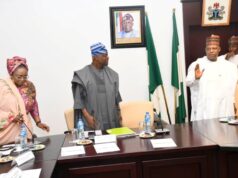By Okoh Sylvester and Oladimeji Abidoye
THUR, SEPTEMBER 8 2016-Scary news leaves Nigerians always scampering and frightened to the marrow. The latest harbinger of fear is the news that the federal government is mulling fuel pump price increase after it was suggested by present and past group managing directors, GMDs, of NNPC on Sunday 4th of September, 2016, an idea blithely mocked by economists and analysts who derided the government for missing the opportunity to exit the petrol pricing market when the window opened.
“It is a good idea to remove the price cap, but it is going to be difficult for the federal government to think about that now when most Nigerians are already directly feeling the impact of failed fiscal and monetary policies,” says one Lagos based analyst.
The GMDs argued that the PMS Price cap of N145 per litre is not in line with the liberalization policy given that the foreign exchange rate and other price determining components such as crude cost, Nigerian Ports Authority (NPA) charges, among others, remained uncapped.
“The removal of the price cap will allow the oil marketers the liberty to sell petrol at their desired price based on several factors such as the exchange rate and international crude price,” they argued.
But the public statement by the GMDs heaped pressure on the federal government, because it simply says that the federal government fixed the price at N145 per litre in May 2016, when it introduced policy changes to herald the full deregulation of the downstream sector of the Nigerian petroleum industry.
The changes were actually geared towards ending the vicious cycle of fuel scarcity crises as well as to put an end to subsidy payments. And the decision to price at N145 per litre, according to a source close to the presidency, was based on the understanding of the entire cost of delivering the product at the time.
“It was purely to let the market drive the pricing from that point,” he said. “The government did not fix the price and has no business changing it in any direction.”
According to G&BJournal’s source, there was also the understanding that prices will vary with the changing factors that influence market directions. What that means is that the N145 per litre price would not stay constant forever. If the price of crude drops or the exchange rate stays happy for a while, the cost of delivery will be lower and price could go down. The reverse is also the case.
Besides, if a company could manage its cost better, it could sell at a more competitive price and that informs why some petrol stations in the country are selling well below the N145 per litre.
“These GMDs are either daft or just wants to create confusion for their own selfish interest. The government did not budget for subsidy. Increasing price now means they will be prepared to pay the subsidy. But, the President himself should shut down the discussion to quieten the populace,” our source said.









